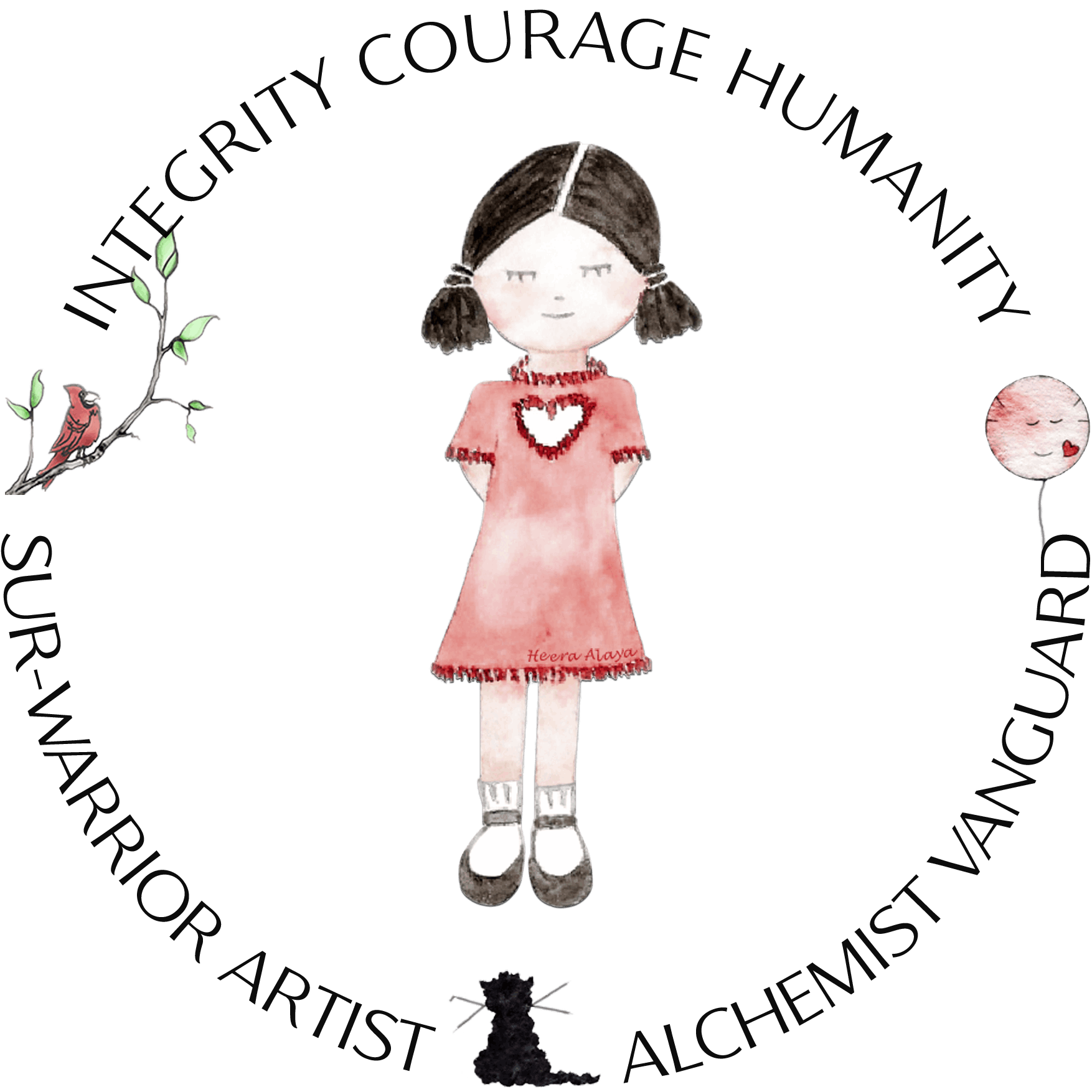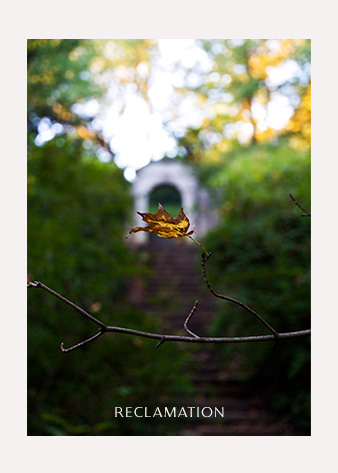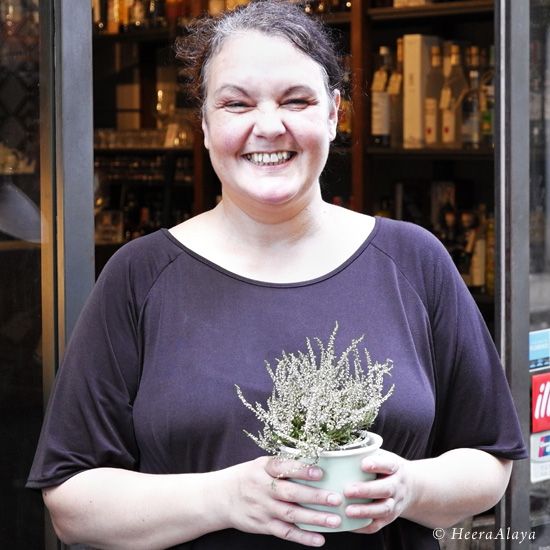
OPEN WINDOWS | Arteries
March 8th, 2023
“Respect is important.
And then, when people are good,
they must enjoy their time.”
ALESSIA
Bar manager, IT
Heera Alaya: [With folded hands, I praise] Molto bene. Molto bene.
Alessia: Prego.
I can’t thank you enough for accommodating me. You had a busy afternoon and could have easily turned me away: “We are closed.”
You arrived here—and I had never seen you before—but you showed me respect. You didn’t take a seat or start ordering; you asked me properly. When I showed you a table, you insisted on waiting until I finished clearing tables before placing the order. Respect is important. And then, when people are good, they must enjoy their time. I am happy that you are happy.
How refreshing. Your approach is not about squeezing in another client; you value consideration and conduct.
I wolfed down layers of eggplant, garlic, olive oil, and tomatoes. What is this dish called?
The dish is melanzane alla parmigiana (you can add parmigiano on the side if you want to).
Was your melanzane alla parmigiana yummy, or was it yummy!
[Emphasises] It is delicious.
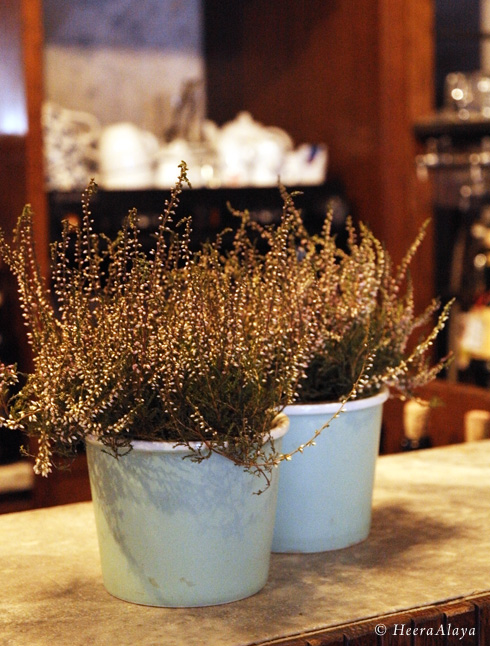

[Appreciating bread placed in a paper bag] How neat is this? The bread tasted different; was it Pane Toscano [Tuscan bread]?
Sì. In Florence, bread is made without salt.
The story goes that Pane Toscano originates from a feud with Pisa.
Sì. Sì. When the ships carrying salt arrived in Pisa, they blocked salt shipments from arriving at the port. The Florentines decided not to buy salt and make bread without salt. [Alessia bursts into laughter]. And there was born a tradition of saltless bread.
Do all Florentines bake unsalted bread?
Ninety percent of Florentine people make bread without salt; it’s our culture.
I chomped through most of the bread, dipping it in the rich sauce and olive oil.
Scarpetta!
Scarpetta?
Soaking and gathering all the sauce from the bowl.
Your cook will be happy, and your dishwasher will be more pleased—I performed a scarpetta of scarpetta’s! You are lucky to have the bowl intact
[Laughter]
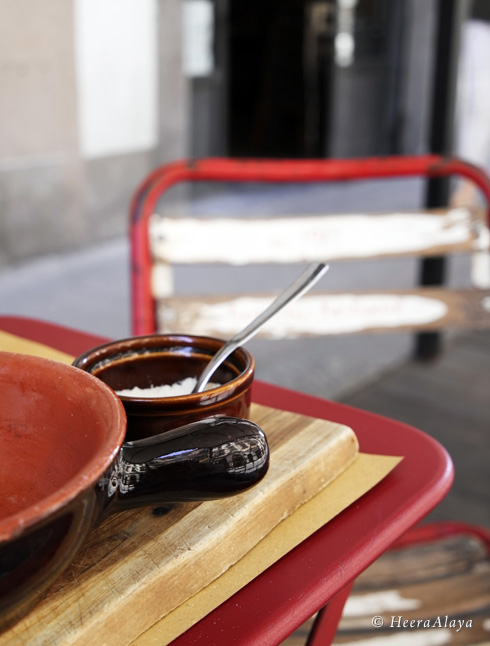
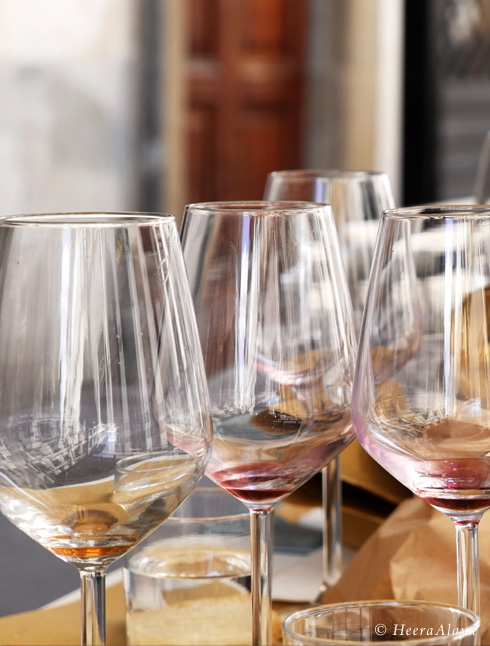
Talking about cooks, how many do you have?
One [cook]. My colleague is a woman, and sometimes I help her.
How do you function if your cook has something pressing to take care of or falls sick?
[[Laughs] Then I cook everything. And if we both are sick, the bar is closed; there is no food. [Alessia roars with laughter].
Impressive. Do you cook all the delicacies?
Sì.Sì. My mother was a good cook; I learned from her. People come to the bar and want a platter with their drinks. So it’s essential to know how to cook.
What does fiaschetteria mean?
Long ago, wine was poured [gestures with her hands] into a bottle, a fiaschetta, and sold.
Fiaschetta means flask, and Fantappié is the owner’s family name, so the bar’s name, Fiaschetteria Fantappié, translates into ‘wine in Fantappié flasks.’
Sì.Sì. Perfect.
How old is Fiaschetteria Fantappié?
The bar, owned by the Fantappié family, has been in the exact location since 1947.
Have you known the Fantappié’s for a while?
Sì. I have known them [Fantappié family] since I was very young. I live here [points out the adjacent building].
Next door to the fiaschetteria?
Sì. The owner’s parents live in the same building [as the wine bar].
Have you always worked here?
Sì.
The fiaschetteria is like your property, which explains your attitude—of ownership and involvement. When you feel something belongs to you, your approach is different, and this approach is what I experienced when I set foot on your property and while interacting with you.
Grazie. When I was a child, I was alone after school hours. My working parents would leave me with the owner’s mother and uncle in the wine shop. We were a very poor family and couldn’t go for a summer holiday, so the owner’s mother would take me with her family to the sea.
The Fantappié family is like a family [Alessia’s voice melts as she expresses her gratitude]. The owner’s mother, who died on 8th February 2019, was very close friends with my mother, who died on 20th February 2019—only 12 days apart, the same year.
Alessia, thank you for sharing. Learning about your journey makes this moment all the more special.
If I had arrived 10 minutes late, your shop would have been closed for siesta.
Sì.Sì. Siesta is important for Florentine people. We open the bar at half past nine [morning], close around 1:30 pm, and open from half past five till half past nine [night], but usually, it becomes ten or half past ten by the time we close.
How do you spend your siesta?
I go home to eat and read a book.
The kitchen closes, too.
Sì.
Are most of your customers locals or tourists?
They are mostly locals [customers]. This side of the Arno [river in Tuscany] is true Florentine and is not touristy. I love it here and hardly go to the other side [of Arno].
I couldn’t agree more with you [preferring Oltrano].
I will be back soon to experience an evening. You can select my wine and nibbles.
Buono. Call me; I will reserve a table for you (The weekend gets busy.).
I will [call for a reservation]. It was lovely talking to you, Alessia. Thank you for your hospitality.
Welcome. You are very carina.
[I politely correct Alessia] My name is Heera.
Sì. But you are carina.
Alessia, you are confusing me with someone else. My name is not Karina; it is Heera Alaya.
I know you are Heera. In Italy, you are a carina woman—you are beautiful, feminine, and dear with soft speech. For me, you are a very carina woman.
[Peels of Laughter]
Amo questo! Amo questo! I don’t need dolce after this compliment. I will relish every drop of your compliment.
[Laughter]
A presto. Grazie mille, Alessia.
Grazie Heera. Ciao.
Learn about Fiaschetteria Fantappie.
